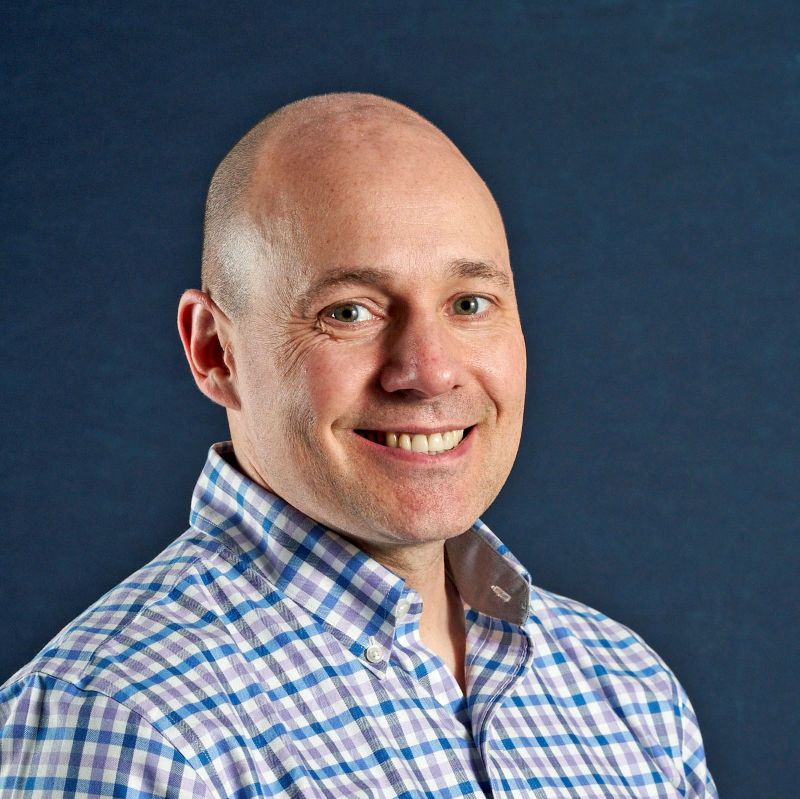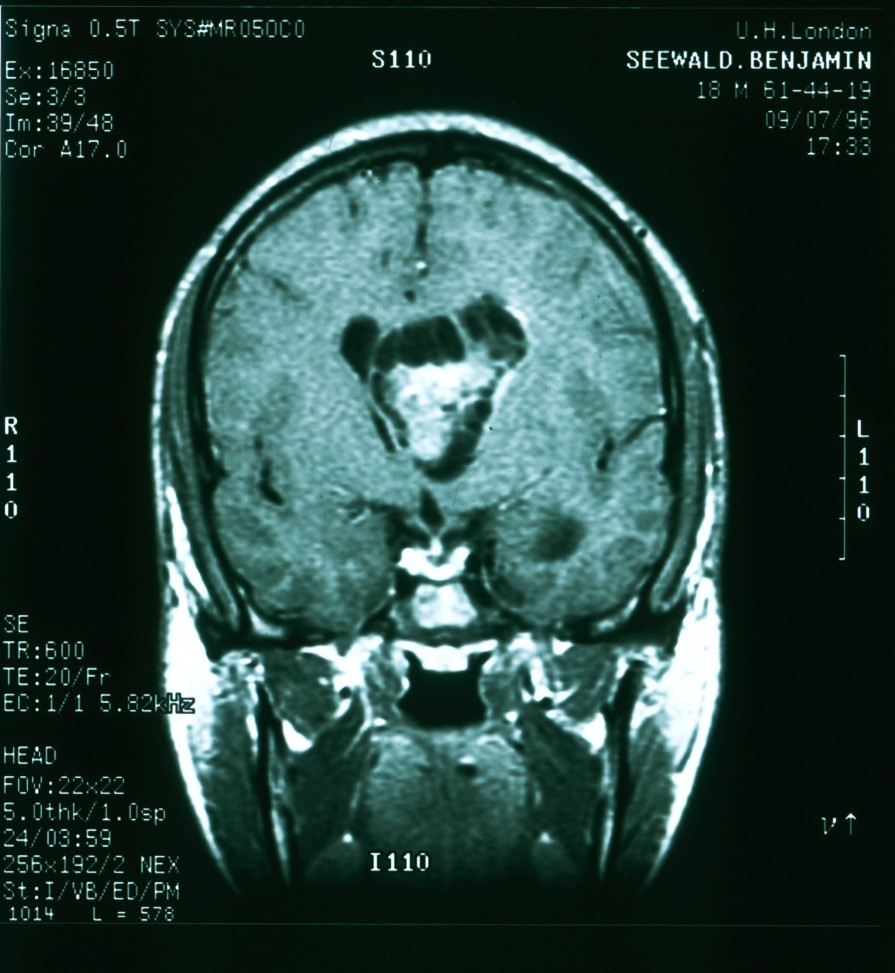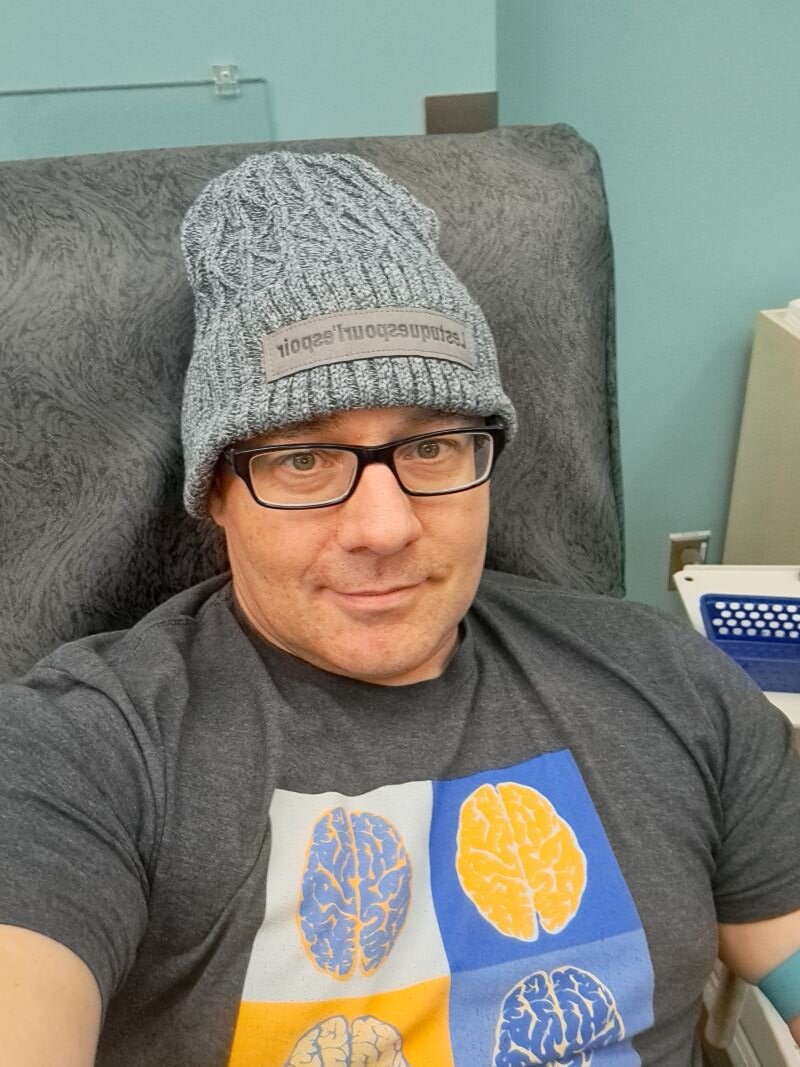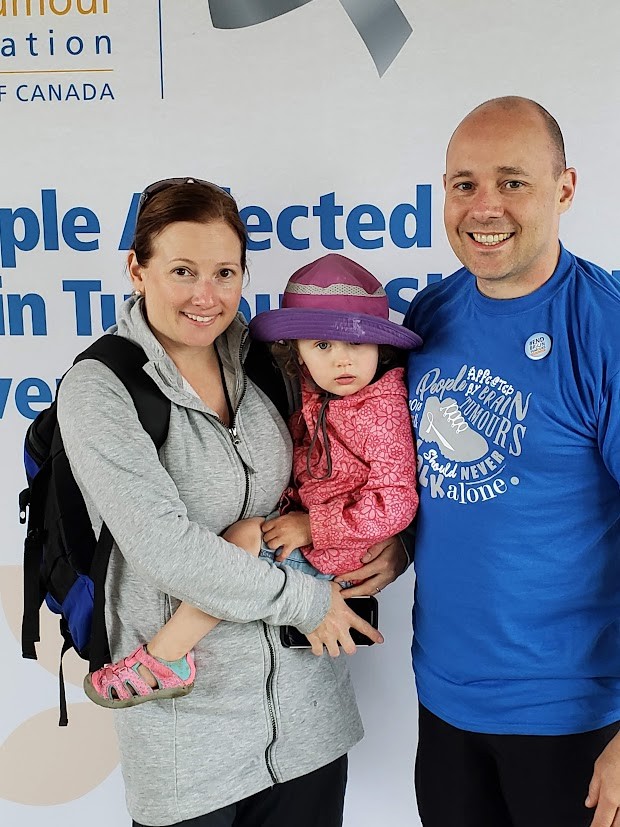
Ben’s full-circle journey from survivor to advocate
Ben Seewald is passionate about his work as a support services specialist at Brain Tumour Foundation of Canada, where he helps children, youth and families managing a brain tumour diagnosis find resources and community.
“It’s really about listening to those individuals, hearing what’s important to them, and then supporting them in the best way I can,” Ben says.
Ben’s lived experience, having dealt with a brain tumour diagnosis and treatment in his own youth, has given him a unique perspective when it comes to helping others.
“This is an extremely important organization to me, personally and professionally,” Ben says, of BTFC. “Every moment of my workday is meaningful and impactful. Even when I’m not at work, thoughts of the brain tumour community are so connected to every part of me that I’m constantly on the lookout for new opportunities or inefficiencies that can be improved.”
“No one has to go through a brain tumour alone or without support.”
A life-changing diagnosis
 It wasn’t always this way for Ben. Like many, brain tumours weren’t on his radar until they had to be, and they’ve shaped his life ever since.
It wasn’t always this way for Ben. Like many, brain tumours weren’t on his radar until they had to be, and they’ve shaped his life ever since.
At 18, he was referred for a CT scan as he’d been experiencing double vision. Ben assured his parents he could handle it on his own, as they had a family trip to Connecticut planned.
“My mom said, almost jokingly, ‘If there’s anything seriously wrong, like a brain tumour, give us a call.’”
Ironically, doctors did find something of concern on Ben’s scan. As it was 1996, Ben didn’t have a cell phone with his parents’ contact information readily available. He asked a friend to go to his family home, where the emergency number was written on a piece of paper by the house phone.
“A doctor called the number in Connecticut, where my parents were visiting my dad’s parents,” Ben recalls. “He asked to speak to Mr. Seewald, and my grandmother, with her strong Brookyln accent, asked, ‘Yeah, which one do you want?’ When the doctor said he was calling from the hospital and looking for Ben’s dad, my grandmother knew it was a serious conversation, and she put my dad on the phone.”
Ben’s parents made the 11-hour drive back to London, Ont., and were at the hospital when Ben woke up the next morning. That’s when Dr. Del Maestro, a neurosurgeon and co-founder of Brain Tumour Foundation of Canada, showed up to review Ben’s file with his parents.
He outlined the risks of surgery, also mentioning that Ben would be eligible for a shunt to relieve the buildup of cerebral spinal fluid and that medication could be an option.
“I looked at my parents and I said, ‘I’m here. Let’s do this,’” Ben recalls. “There wasn’t a lot of discussion or thought around it. It was just the right choice for me at the time.”
Ben was scheduled to have surgery a week later, spending his waiting time in hospital.
“Day three or four, I had an MRI done,” Ben says. “They put my results up on the light board and my dad said, ‘Well, I guess we can skip the denial stage.’ My tumour was right there, and about the size of a large plumb. There was no way to deny that it existed.”
On July 15, 1996, Ben underwent a 12-hour surgery under the watchful eye of Dr. Del Maestro, who was able to remove all of Ben’s central neurocytoma.
Finding strength in community
Dr. Del Maestro’s wife, Pam, was also instrumental in Ben’s recovery. She connected Ben with a Brain Tumour Foundation of Canada Support group, and ensured he was supported through the organization’s resources.
“The handbook was really my first touchpoint with BTFC,” Ben says. “It clarified the medical jargon and helped my family navigate some of the difficulties I was experiencing.”
During Ben’s recovery, he says he watched a lot of the Summer Olympics happening at the time and enjoyed walks around the neighbourhood with his friends.
“I was really keen on starting back to school with my classmates,” Ben says. “I worked hard towards that.”
After his Ontario Academic Credit (OAC) year following high school, Ben turned his focus to giving back.
He attended Wilfrid Laurier University in Waterloo, Ont., where he helped others adjust to post-secondary as part of student-life committees. He started volunteering with BTFC, while also attending the London-area support group. He also spearheaded a fundraiser, selling T-shirts around campus to raise funds for BTFC.
“Then, I did what a lot of people did,” Ben says. “I graduated and moved into my parents’ basement.”
Finding his path
 Still connected to BTFC, Ben walked into head office one day and offered his services.
Still connected to BTFC, Ben walked into head office one day and offered his services.
“I said, ‘I’ve got a lot of time on my hands,’” he recalls. “‘I’m happy to stuff envelopes or do whatever you need me to do.’”
The organization was hiring at the time and took Ben on as an office assistant.
“I was employee number six,” Ben says.
In the five years he spent with BTFC, between 2003 and 2007, Ben and the team worked to grow the Brain Tumour Walk across a national platform.
“The organization was going through a tremendous period of growth,” Ben says, noting that the Brain Tumour Walk brought in $300,000 in its early stages and reached more than $1 million during his first tenure.
By 2007, Ben decided he wanted to try something different. He applied for a job at Queen’s University in Kingston, Ont., and was hired to work in student and alumni programming through the alumni office.
“It was about training outside-the-classroom skills, so the university could matter to students and alumni beyond the education it provided them,” Ben says.
He treasures his time at Queen’s University, noting that he had the opportunity to work with incredible people in his role. His move to Kingston benefited him in more ways than his professional life though, as he met his now-wife, welcomed a daughter, and made Kingston his home.
Back to where it all started
All the while, he remained connected with BTFC, volunteering with the Youth Education Awards adjudication committee.
“The stories we reviewed and the boost that we were able to provide through those awards was immensely impactful to the recipients,” Ben says.
Come 2023, Ben was the volunteer co-ordinator for the Kingston Brain Tumour Walk. He met with BTFC’s then-CEO during a visit to Kingston, where they discussed an open position at the organization.
“It all happened pretty quickly,” Ben says. “Coming back to the organization, to the community that means so much to me is a tremendous gift. ”
“This organization continues to do such important work for a cause that people don’t think about until they have to. So being a part of that—it may be cliché to call it a dream come true—but it is aligned with what I believe my life’s purpose to be.”
Ben’s initial role involved connecting with major gift and legacy donors, as part of the organization’s fund development team.
“It was great to connect with people, hearing what they were passionate about and what they wanted to see us doing as an organization,” Ben says.
Over time, he shifted to his current role, which speaks more to his lived experience and his desire to help others navigate the path he knows all too well.
“I’ve been given extra time in this life,” he says. “I want to make the most of it and earn it in a way that will make the world a better place for the brain tumour community.”
Coming full circle
 Working for an organization that was co-founded by his neurosurgeon, Dr. Del Maestro, along with his wife, Pam Del Maestro, who both had such an indelible impact on him, has also stuck with Ben.
Working for an organization that was co-founded by his neurosurgeon, Dr. Del Maestro, along with his wife, Pam Del Maestro, who both had such an indelible impact on him, has also stuck with Ben.
“I don’t know what we, as humanity, did to deserve them as a couple, but they’ve made such a difference in my life and the hundreds of thousands of other lives they’ve touched,” Ben says.
Though Ben isn’t required to have regular scans anymore, he did request an MRI several years ago when he was experiencing headaches, trouble sleeping and difficulty concentrating.
“I was having symptoms that only a brain tumour patient would really flag as a problem,” Ben says. “Luckily, there was no evidence of a brain tumour. But it’s something I’m always conscious of.”
So is maintaining his health, both physical and mental. He enjoys keeping active and used to play baseball, “until my body started breaking down,” he laughs.
Ben also likes to be social, connecting with others in his community, and sharing good stories.
“Whether it’s books, movies or music, I really love listening to stories,” he says. “Telling them, too. Passing on information, sharing stories, is again, hardwired into my DNA.”
As Ben’s 30-year “tumour-versary” approaches next year, he reflects on how far he’s come.
“No one should have to go through a brain tumour diagnosis, but as weird as it sounds, I’m glad I did,” he says, of the journey that’s brought him to where he is today. “It’s been a wild ride. My experience really shapes my world view and how I approach people on a daily basis. And I’m grateful for all of it.”